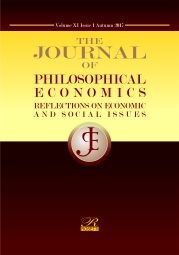"This lofty mountain of silver could conquer the whole world”: Potosí and the political ecology of underdevelopment, 1545-1800
"This lofty mountain of silver could conquer the whole world”: Potosí and the political ecology of underdevelopment, 1545-1800
Author(s): Jason W. MooreSubject(s): Philosophy, Social Sciences, Economy, Special Branches of Philosophy, Sociology, Philosophy of Science, Social Theory, Socio-Economic Research
Published by: Editura Rosetti International
Keywords: world-systems analysis; environmental history; political ecology; capitalism as world-ecology; political economy;
Summary/Abstract: By the 1570’s, Potosí, and its silver, had become the hub of a commodity revolution that reorganized Peru’s peoples and landscapes to serve capital and empire. This was a decisive moment in the world ecological revolution of the long seventeenth century. Primitive accumulation in Peru was particularly successful: the mita’s spatial program enabled the colonial state to marshal a huge supply of low-cost and tractable labor in the midst of sustained demographic contraction. The relatively centralized character of Peru’s mining frontier facilitated imperial control in a way the more dispersed silver frontiers of New Spain did not. Historical capitalism has sustained itself on the basis of exploiting, and thereby undermining, a vast web of socio-ecological relations. As may be observed in colonial Peru, the commodity frontier strategy effected both the destruction and creation of premodern socio-ecological arrangements.
Journal: Journal of Philosophical Economics
- Issue Year: IV/2010
- Issue No: 1
- Page Range: 58-103
- Page Count: 46
- Language: English

